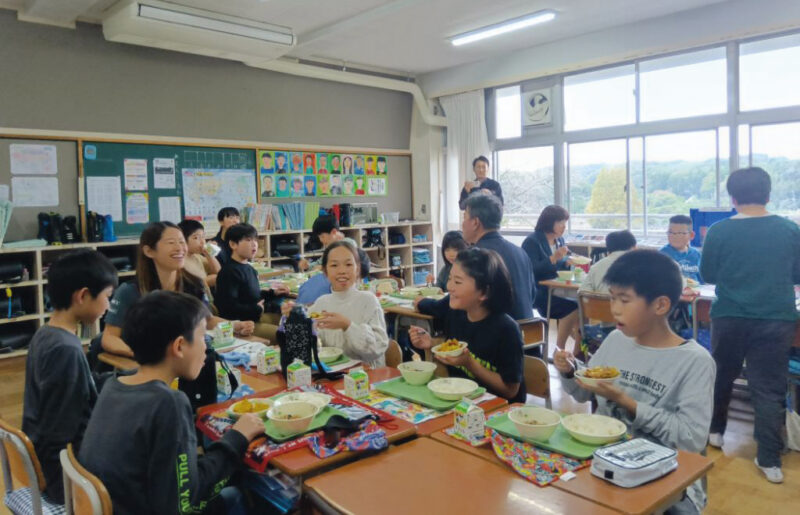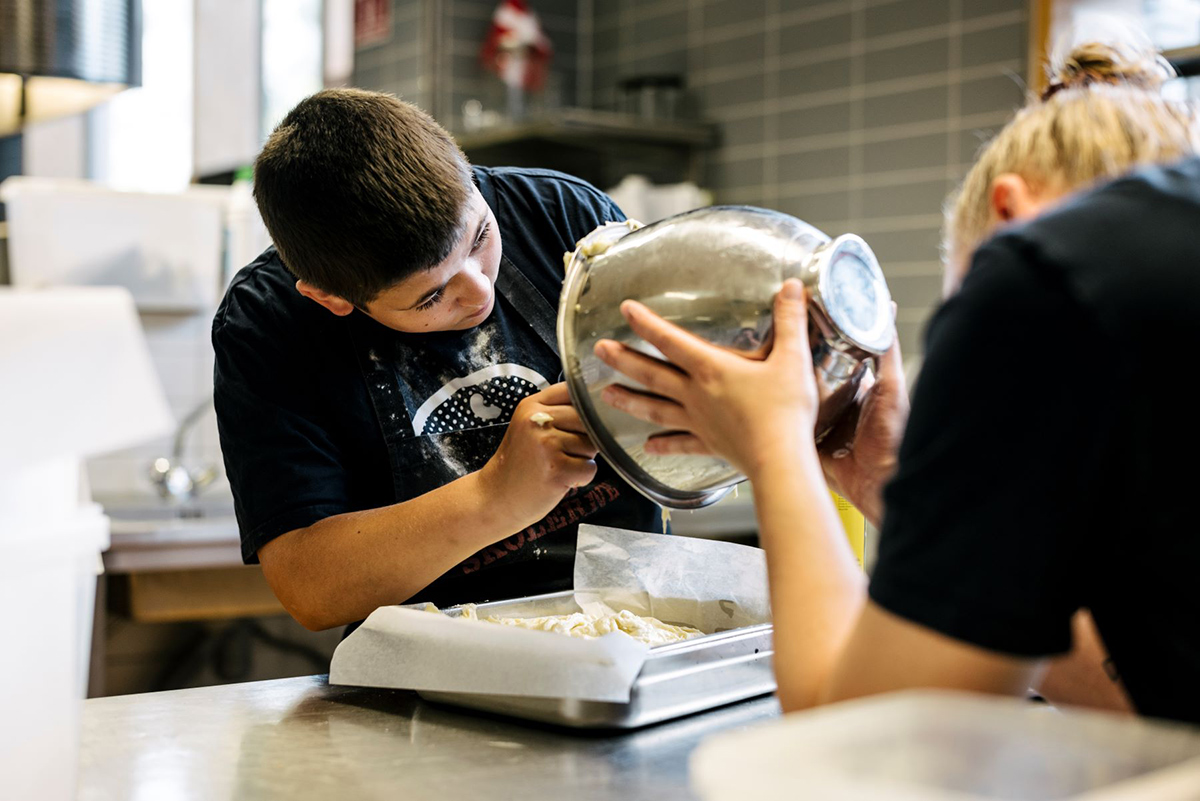Across the globe, organic organizations and governments are pioneering organic school meals and public procurement programs as drivers for sustainable food systems. Innovative models on all continents are providing not only healthier meals benefitting children and all citizens but also providing more, tasty, low-waste, plant-rich, culture-bearing and climate friendly meals where organic food provides added benefits for nature, climate, water quality and rural livelihoods.
In Copenhagen, “Food Schools” involve children in making meals and integrate food themes, including food production impacts, into classes for math, science and history. In Japan, 90% of 130 Organic Villages have introduced organics in school meals; school children are out on organic farms, and farmers are invited to lunch in schools.
As we write, school children in Brazil are eating food from local organic and agroecological farms, and if current lobby efforts succeed, so will participants at this year’s COP 30 in Brazil.
These best practices stand in stark contrast to the lack of access to healthy school meals for millions of children, and downward pressure on quality of public meals and local economies as more and more centralized public procurement agreements prioritize lowest possible price, lowest possible environmental care and no opportunities for small local and regional suppliers.
Find allies! Develop tools!
The organic movement is fighting back! Building coalitions of diverse stakeholders, breaking down barriers and developing new tools. Public procurement and particularly school meals provide a strong platform for organic goals for social equity and for broad alliances with allies working for health, education, equity, climate, smallholder farms, traditional food culture and a shift to more plant-based meals. The COACH project provides a Legal Guide on Farm to Fork Procurement, including organic goals and how to shift criteria weights from price to environment and open tenders to smaller local producers, including creative linking of bids to educational goals, where small local producers invite children to their farms.
The European Food Policy Coalition has developed a manifesto for public canteens with strong focus on organics, and the School Food 4 Change Coalition and the Buy Better Food campaign in Europe have united sustainable cities (ICLEI), European Public Health Alliance and IFOAM Organics Europe gathering 100.000 signatures for school lunches for all children, including goals for organic. New Taipei City, one of hundreds of Asian Local Governments for Organic Agriculture, and IFOAM Asia hosted the 2nd International Conference on School meals and Public Procurement in Taiwan bringing together, practitioners, organizations and governments from all continents to exchange lessons.
 Photo courtesy of IFOAM International.
Photo courtesy of IFOAM International.Holistic agenda
In Denmark, it’s a holistic agenda. Thousands of schools, hospitals, childcare centers, retirement homes, ministries, and even military barracks have transformed food preparation so that meals are more plant-rich, with less meat, more seasonal products, and much less food waste. This provides healthier, climate-friendly, organic meals within the same budget, because reductions in meat and waste cover the organic price difference, up to at least 60-70 percent organic. Money goes to farmers instead of the waste bin or to over-consumption of meat!
Organic Public Procurement motivates everyone
Not surprisingly, kitchen workers gain both prestige and pride as their craft is driving this positive change. Wholesalers are motivated by shifts in public procurement to present organic options for their private hotel and restaurant customers. And people eating in canteens hear more about the benefits of organic, rubbing off on their own choices in the market. In Japan, parents whose children get organic in school have started buying more organic food at home. Taiwan, South Korea, and Japan have found that farmers are more highly motivated to convert to organic when their harvests will go to school meals, while higher government prices for organic school rice has helped organic farmers survive.
Other lessons learned
None of this happens on its own. Here are some lessons about what is needed:
- Strong policy with ambitious national and municipal goals for organic procurement.
- Capacity building in organic organizations to drive transitions to sustainable public procurement throughout the supply chain and with allies.
- Financing for education of kitchen workers on changes in meal preparation.
- Organic cuisine labels for visibility (and pride). The Danish gold-silver-bronze model for 30/60/90 percent organic has spread to multiple nations, latest Germany.
- Use of innovative public tenders, prioritizing organic and local food culture, and opening for smaller local suppliers.
- Participatory Guarantee Systems as a platform for local supply of organic and agroecological products to school meals, as is being piloted in E. Africa.
- Use of frontrunner schools, hospitals etc as convincing Proof of Concept for city and national policy makers (and everyone else!).
The transition to healthy, climate friendly and tasty organic meals can be accelerated by greater regional and global exchange of models and lessons learned. Let’s do it!
Authors: Miyoshi Satoko (former World Board member) & Paul Holmbeck (World Board member), IFOAM – Organics International | www.ifoam.bio
Article Originally Published in Bio Eco Actual International Yearbok 2024 – Trends 2025.
Bio Eco Actual, International Organic Newspaper
Read the Bio Eco Actual International Yearbok 2024 – Trends 2025
The article Public meals: a driver for organic food and farming! appeared first on Bio Eco Actual.






